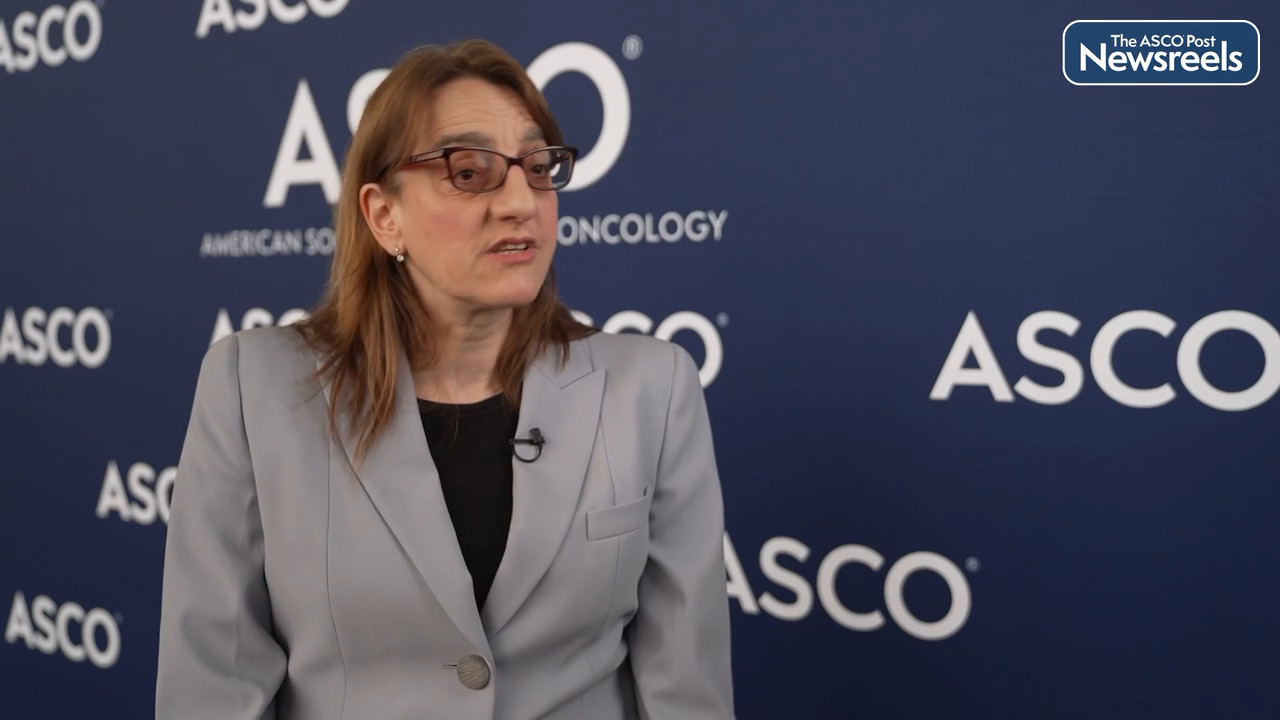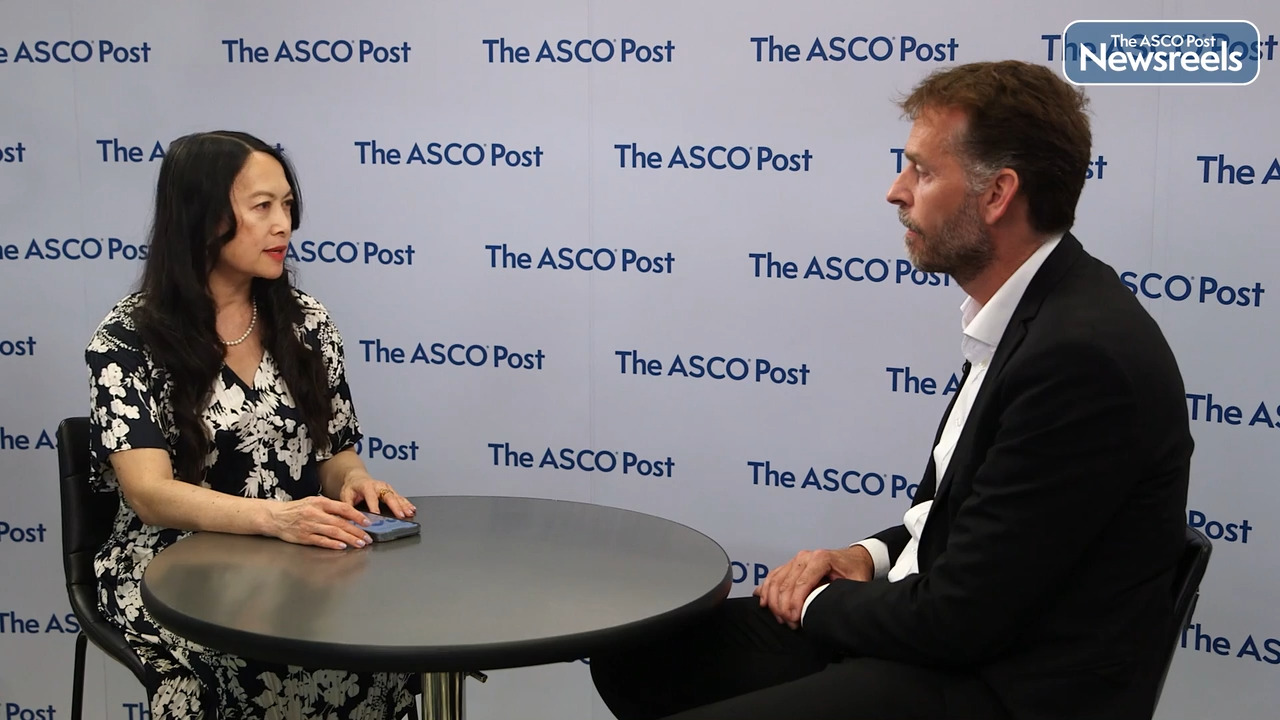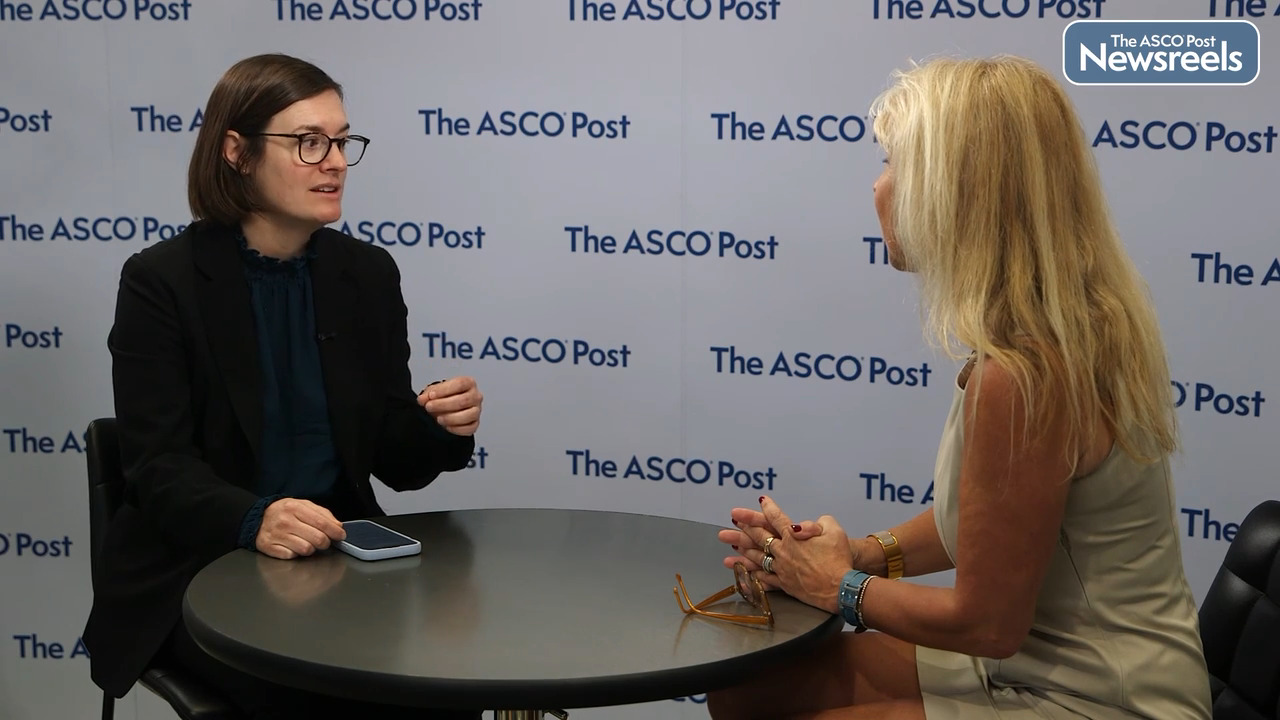Ajay K. Nooka, MBBS, Relapsed or Refractory Multiple Myeloma: Efficacy and Safety Data for Elranatamab
2023 ASCO Annual Meeting
Ajay K. Nooka, MBBS, of Winship Cancer Center of Emory University, discusses findings from a pooled analysis of MagnetisMM studies. The data showed that, in patients with relapsed or refractory multiple myeloma who have not yet been treated with B-cell maturation antigen–directed therapies, elranatamab was efficacious and well tolerated.
Related Videos
The ASCO Post Staff
Funda Meric-Bernstam, MD, of The University of Texas MD Anderson Cancer Center, discusses interim results from the DESTINY-PanTumor02 trial, the first tumor-agnostic global study of fam-trastuzumab deruxtecan-nxki (T-DXd) in a broad range of HER2-expressing solid tumors. This agent showed an encouraging overall response rate, particularly in patients with IHC 3+ expression; durable clinical benefit; and a manageable safety profile in these heavily pretreated patients. T-DXd may be a potential new treatment option for this population (Abstract LBA3000).
The ASCO Post Staff
Cathy Eng, MD, of Vanderbilt-Ingram Cancer Center, and Lars Henrik Jensen, MD, PhD, of the Danish Colorectal Cancer Center South and the University Hospital of Southern Denmark, discuss phase III results from the Scandinavian NeoCol trial, which showed that neoadjuvant chemotherapy is not superior to standard upfront surgery in terms of disease-free and overall survival in patients with colon cancer, although there are certain circumstances when this approach may have more favorable outcomes (Abstract LBA3503).
The ASCO Post Staff
Rana R. McKay, MD, of the University of California, San Diego, and Toni K. Choueiri, MD, of Dana-Farber Cancer Institute and Harvard Medical School, discuss results from the phase III CONTACT-03 study, showing that, for patients with metastatic renal cell carcinoma (RCC), adding the PD-L1 inhibitor atezolizumab to cabozantinib did not improve clinical outcomes compared with treatment with cabozantinib alone. In addition, higher toxicities were observed in the combination arm (Abstract LBA4500).
Ajay K. Nooka, MBBS, of Winship Cancer Center of Emory University, discusses phase II findings showing that, in patients with high-risk myeloma, maintenance therapy with carfilzomib, pomalidomide, and dexamethasone deepened responses. Measurable residual disease negativity was attained in 80% of patients.
The ASCO Post Staff
Bobbie J. Rimel, MD, of Cedars-Sinai Medical Center, and Isabelle L. Ray-Coquard, MD, PhD, of Centre Léon Bérard and the University Claude Bernard Lyon Est, discuss findings from the COLIBRI trial, which showed that, for patients with cervical squamous cell carcinoma, neoadjuvant nivolumab plus ipilimumab is safe and orchestrates de novo immune responses. The 82.5% complete response rate for primary tumors 6 months after standard chemoradiation therapy suggests favorable clinical outcomes (Abstract 5501).




